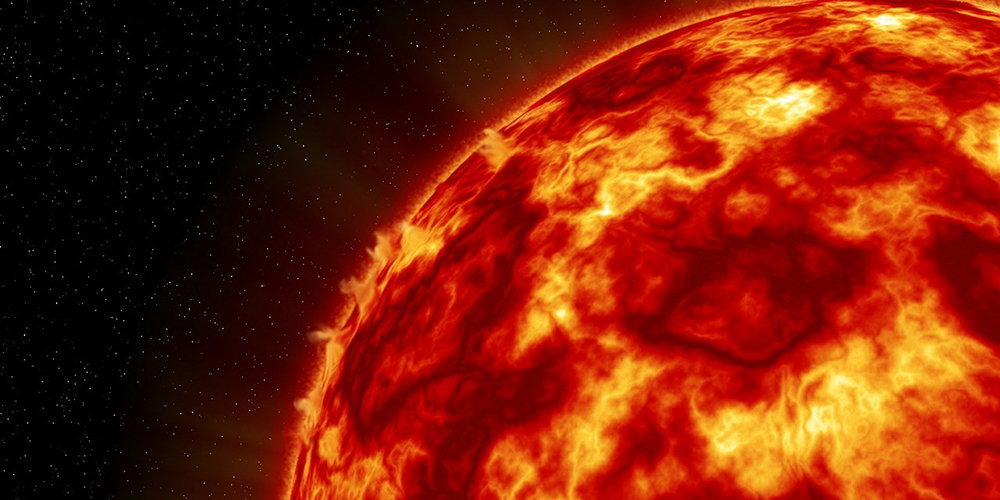In five billion years, when the sun becomes a red giant, that’s it. It will expand to a massive size, swallowing the Earth and bursting it into thousands of pieces. In the British television show Dr. Who, The Doctor and his companion, Rose, witnessed this tragic spectacle up close, having traveled to the year 5,000,000,000 (here from 3:00 min, or here). Shortly afterwards, our home star dies due to the lack of nuclear fusion taking place in its core.
Until then, it will continue to warm the Earth with its rays, as the sun is virtually inexhaustible as a source of energy in its remaining time. In the future, we will also use it more and more for our energy needs – quite a departure from the fossil-based energy sources on our blue planet, such as oil. The end of fossil fuels is certainly being postponed repeatedly due to new discoveries and especially due to new extraction methods such as fracking and harvesting oil sands. However, these are just hopeless attempts to keep a doomed industry alive for another couple of decades. We all know that oil is a finite resource and it will eventually run out.
That’s why I’m surprised that even renowned experts repeatedly talk about ‘the oil of the future’ when they want to emphasize the importance of data. This is, with all due respect, a nonsensical concept, given that data volumes will explode in the next few years. We can definitely rule out an explosion in the amount of oil.
Data is not the new oil. For us at Dell it’s clear: Data is the new sun, virtually inexhaustible.
We want to make that semantic clarification. By the way, the IoT and unstructured data are the main causes for the amount of stored data growing exponentially. New technologies such as virtual reality also contribute to this.
Viewed in isolation, we could simply shrug our shoulders in light of this ever more powerful data tsunami. After all, storage solutions and bandwidths are capable of keeping up with the pace and computer performance isn’t an issue anymore anyway.
Although that’s true, it would be a mistake to judge the situation on that alone, as there is a lot more to it. The volume of data we already have now means we have reached a threshold that enables a completely new level of quality in terms of analysis. Suddenly, better forecasts are possible, as are better decision-making bases. You have definitely already guessed that I want to bring the issue of artificial intelligence into play. But that’s exactly what this is all about. I can remember that AI already had its heyday at the end of the 1980s; everyone was talking about it, everyone was designing application scenarios and visions. However, they were never implemented because there wasn’t enough data (well, ok, there also wasn’t enough computing power). Today, it’s different, as big data allows companies of all types to actually change the paradigm of processing and analyzing their data. And as we know: The more data, the better the results.
Data is the true fuel for AI – based on solar energy, of course, not oil.
